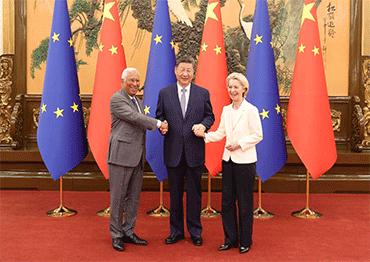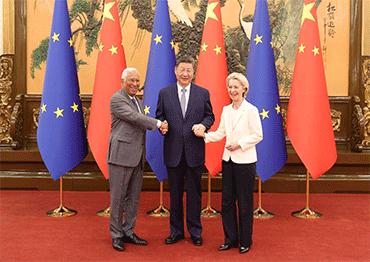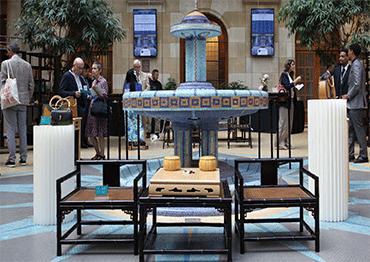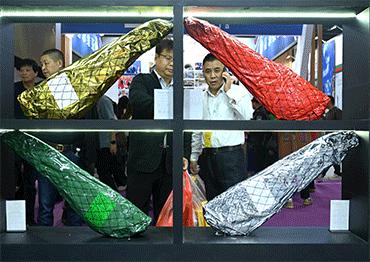The US-led global tariff war has also been a major factor in EU’s stance toward China. With reduced Chinese access to the US market, the EU fears that Chinese exports originally destined for the US could be redirected to Europe, potentially disrupting local markets and putting additional pressure on European businesses.
For many officials and analysts, the EU appears to be using its relationship with China as leverage in negotiations with the US. “To resolve the tariff disputes with the US, the EU may, to some extent, use its economic and trade relations with China as a bargaining chip in negotiations with Washington, potentially posing a threat to China-EU trade ties,” Jian said.
This perception was reinforced when President von der Leyen substantially escalated her criticism of China on July 8, a day after the Trump administration sent letters to 14 countries threatening steep tariff hikes unless they made major concessions. In a statement made to the European Parliament in Strasbourg, France, von der Leyen laid out several conditions for advancing the China-EU partnership.
She called for a “genuine rebalancing” of bilateral ties, with “fewer market distortions, less overcapacity exported from China and fair, reciprocal access for European business in China.” Labeling China as a “decisive enabler” of Russia’s war against Ukraine, von der Leyen said the bloc “cannot accept” China’s “de facto enabling Russia’s war economy” and warned that the issue will be a “determining factor” for EU-China relations going forward.
China’s Foreign Ministry issued a strong response the following day. “China hopes the EU will realize that what needs rebalancing is its own mindset, not China-EU economic and trade relations,” Foreign Ministry spokesperson Mao Ning told reporters in Beijing on July 9.
Highlighting the EU’s own plan to “provide 1.44 trillion euros (US$1.7t) in subsidies from 2021 to 2030, with over 300 billion euros (US$351.1b) distributed by 2024” to various industries, Mao said: “The EU should not apply double standards.” Mao reiterated that China’s relations with Russia “do not target” any third party, and should not be interfered with.
Stressing that “China’s development creates opportunities, not challenges for the EU,” Mao urged Brussels to adopt a more “objective and rational perception” of China, and pursue a more “positive and pragmatic” China policy.
Following the exchange just ahead of the EU-China leaders’ summit later in the month, China-EU interactions took a noticeable downturn. The summit’s duration was shortened from two days to one at Beijing’s request, media reported.
On July 18, a week ahead of the summit, the EU imposed sanctions on two Chinese banks for their alleged role in supplying Russia. The move prompted China to lodge “solemn representations” with the EU’s trade chief in protest. During the summit, von der Leyen repeated her “rebalancing” message, while China held firm on its strategic positions, refusing to yield on key issues.

 Old Version
Old Version



